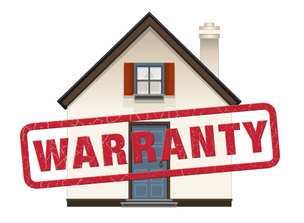|
In some rare circumstances, if a property is affected as at the contract date because:
a) its present use is not lawful; b) the land or common property (if the property is within a community titles scheme) is affected by a proposal of a competent authority, for example, transport infrastructure; c) access or any services to the land or common property (if the property is within a community titles scheme) passes unlawfully through other land; d) an authority has issued a current notice to treat, or notice of intention to resume the land or common property (if the property is within a community titles scheme) ; e) the property is affected by the Queensland Heritage Act 1992 or is included in the World Heritage List; f) the property is declared acquisition land under the Queensland Reconstruction Authority Act 2011; g) there is a charge against the land under the Foreign Acquisitions and Takeovers Act 1975; and this is not disclosed in the contract by the seller, the proposed buyer may be able to terminate the contract up until settlement. If the proposed buyer does not terminate in accordance with the contract, then the proposed buyer will be treated as having accepted the property subject to these issues.
0 Comments
Seller may not be aware that a contract for the sale and purchase of real estate property usually requires the seller to provide some forms of warranty to the proposed buyers.
These warranties usually involved various things that could affect the property such as correctness of title, capacity to complete, no judgments, orders or writs affecting the property, no unregistered dealings, no notices of body corporate meetings (if the property is within a community titles scheme) and no obligation to give a notice required by the Environment Protection Act 1994. The seller should be aware that if the seller breaches any of these warranties, the proposed buyer generally may either: (a) terminate the contract by no later than 2 days before settlement; or (b) elect to claim compensation against the seller before settlement and proceed to completion. If you buy two or more properties or enter into two or more contracts that the Office of State Revenue considers arise from the one arrangement, then you may be liable to pay more transfer duty based on the aggregate value of the assets being purchased.
You may wish to contact your legal advisor as soon as possible if you have: a) previously bought a property from any of the sellers noted in the contract (including family members or associates of any of the sellers, such as companies or officeholders related to any of the sellers); b) bought an adjoining or nearby property from anyone - particularly to develop together with this current property; c) bought a business in conjunction with this transaction; d) negotiated the contract or property together with or shortly after other contracts or property (for example, when purchasing a management right business and a manager’s unit); or e) otherwise have reason to believe that the Office of State Revenue may consider this transaction as one transaction with another contract or agreement. |
Archives
August 2020
Categories
All
|
62 Sanders Street UPPER MOUNT GRAVATT QLD 4122
|
Contact Us |



